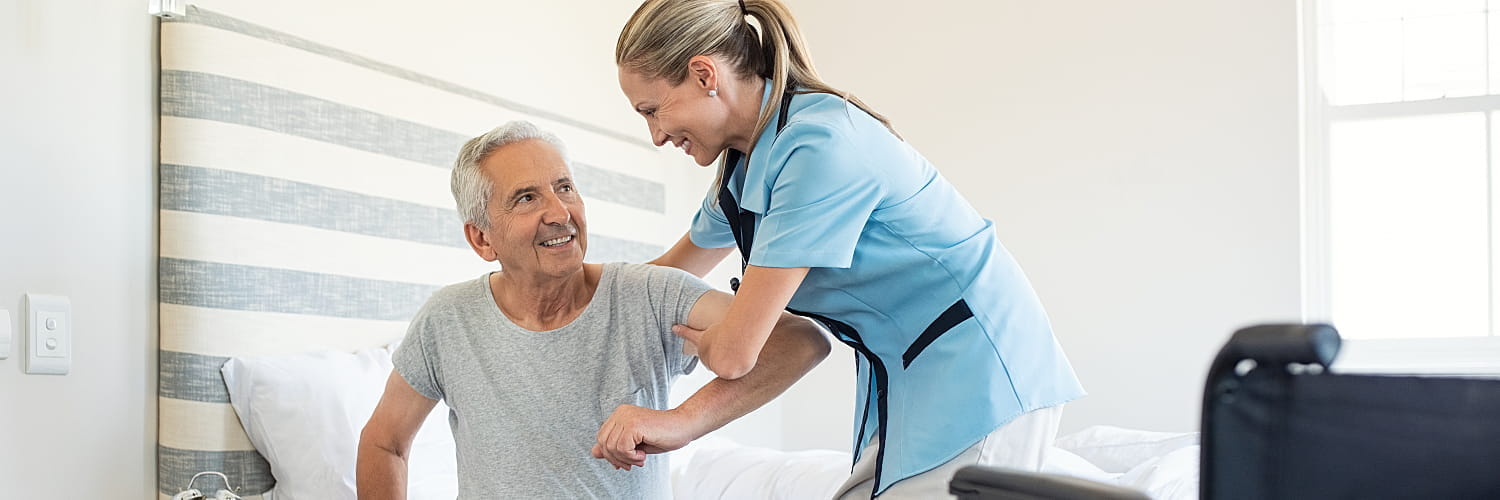Most Americans will need long-term care after they turn 65, the U.S. Department of Health and Human Services says. Spending retirement savings on long-term care is a situation most of us want to avoid. But if you served in the military, you might qualify for veterans benefits for assisted living.
People who need help with Activities of Daily Living, such as personal hygiene, eating, mobility and maintaining continence as they age, often move into an assisted living community. Typically, the assisted living resident lives independently in an apartment while receiving help with specific daily functions.
But assisted living sometimes comes with a hefty price tag. Long-term care insurance can help pay for some of these costs. And if you're a veteran, the Veterans Affairs Aid and Assistance benefits and Housebound allowance programs could defray the cost of assisted living.
Here's what you need to know.
Will I Need a Veterans Affairs Pension?
To qualify for veterans benefits for assisted living, you must receive a pension from the VA.
If you're a wartime veteran and you meet the disability, income and net worth requirements, you're eligible for the pension program. You can't receive a VA pension if you were dishonorably discharged or didn't serve long enough during wartime periods. You must also meet at least one of these requirements:
- You are at least 65 years old.
- You have a permanent and total disability.
- You receive long-term care in a nursing home because of a disability.
- You receive Social Security Disability Insurance or Supplemental Security Income.
To qualify for a VA pension in 2021, your net worth — which includes your spouse's assets and annual income, if you're married — cannot exceed $130,773. Assets include investments, furniture and boats, but not your primary residence, car and basic home items.
What Are the Aid and Assistance Benefits and Housebound Allowance?
Qualified military veterans might be eligible to receive the VA's Aid and Attendance benefits or Housebound allowance to help pay for assisted living. The programs provide monthly supplements to VA pensions to qualifying veterans and their survivors.
If you don't receive a VA pension, you must apply for one before applying for the Aid and Attendance or Housebound benefits.
To be eligible for the Aid and Attendance benefit, veterans and their survivors must receive a VA pension and meet at least one of these requirements:
- You depend on a person to perform everyday activities.
- You are bedridden or spend much of the day in bed due to illness.
- You are in a nursing home because you've lost physical or mental abilities because of a disability
- Your eyesight is severely limited.
To be eligible for the Housebound allowance, you must receive a VA pension and spend most of your time at home because of a permanent disability.
If you receive either benefit, you must use it to pay for help with Activities of Daily Living. You can't receive the Aid and Attendance benefits and the Housebound allowance at the same time.
How Much Assistance Could I Receive?
Your pension rate is based on the difference between your countable income and your Maximum Annual Pension Rate (MAPR), which is based on qualifications such as marital status and number of dependents. If you qualify for either, your MAPR will include the Housebound allowance or the Aid and Assistance benefits.
For example, if you're a veteran with one dependent spouse or child and you qualify for the Aid and Attendance benefits, your MAPR is $27,549. If your yearly income was $10,000, your annual VA pension would be the difference, or $17,549, which is about $1,462 per month.
The VA website has more information about veterans benefits for assisted living and how you can apply for them.


 Deb Hipp
Deb Hipp










